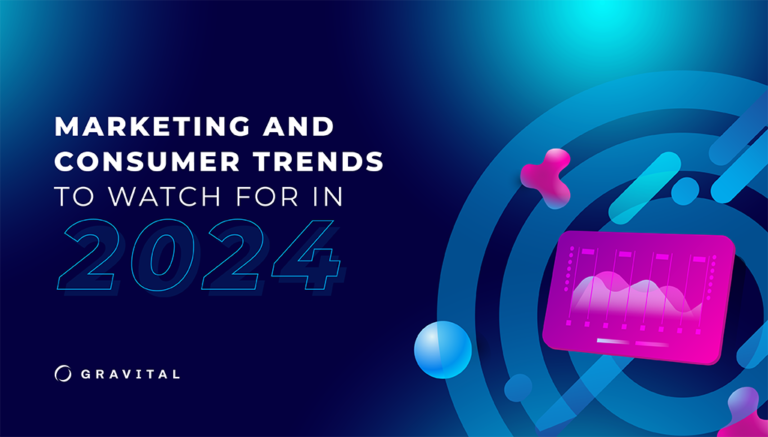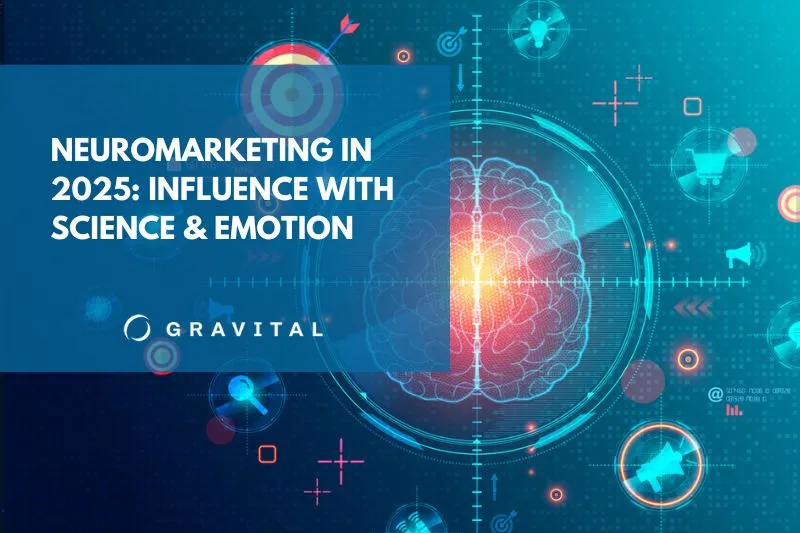Key Marketing Insights for Brands, Businesses in the AI Era
As we stand on the brink of 2024, the marketing landscape is evolving at an unprecedented pace. With technology and consumer behaviors constantly shifting, businesses and marketers must stay ahead of the curve to remain competitive and effective.
In this blog post, we will look into the trends that are set to shape the marketing world in 2024, drawing insights from the transformations we witnessed in 2023 and the burgeoning role of artificial intelligence (AI) in marketing strategies.
2023: The Year in Marketing
Last year was a pivotal one for marketing, marked by significant changes, such as greater integration of AI and machine learning technologies in a variety of digital marketing strategies.
We saw a rise in the use of chatbots for customer service, a greater focus on user privacy and data protection, and a surge in video content, especially short-form videos, as a key driver of user engagement. These trends led brands and marketers to rethink their targeting and marketing tactics.
Conversely, some trends lost their steam. For instance, cookie-based tracking faced major challenges due to privacy concerns, forcing businesses and marketers to seek alternative data collection methods.


Here’s a quick summary of the most notable changes:
- Short-form video: Platforms like TikTok and Instagram’s Reels captivated audiences with their bite-sized, engaging video content, prompting brands to incorporate this tactic in their marketing campaigns.
- Influencer marketing: This type of marketing gained ground as brands sought to leverage the credibility and reach of influencers to connect with their target audiences.
- Social commerce: Social media platforms further integrated e-commerce capabilities, blurring the lines between social interaction and online shopping. Companies leveraged this trend to drive sales and enhance customer engagement.
- Customer experience: Brands recognized the importance of providing exceptional customer experiences, focusing on personalization, omnichannel interactions and empathetic customer service.
- Data-driven marketing: More businesses and marketers began relying on analytics and insights to make informed decisions and optimize their campaigns.
AI: Rookie of the Year
AI has moved from being a futuristic concept to a core component of modern marketing strategies, especially in digital marketing. The technology’s ability to analyze large datasets has enabled unprecedented personalization, allowing companies to optimize customer experiences and boost engagement rates.
The latest AI-driven tools are capable of crafting content, predicting consumer behaviors and automating routine marketing tasks, thus enhancing the efficiency and effectiveness of marketing efforts.
As a result, more brands and marketers are using AI in their campaigns to fine-tune audience targeting, increase customer engagement and gain deeper insights into consumer behavior.


AI’s impact on marketing:
- Automation of repetitive tasks: AI can automate routine tasks such as ad creation, social media scheduling and email marketing, freeing up marketers’ time to focus on more strategic initiatives.
- Personalization of customer experiences: AI algorithms can analyze customer data to create personalized recommendations, product suggestions and marketing messages, leading to more conversions and greater engagement, satisfaction and loyalty.
- Expediting customer service: AI-powered chatbots and virtual assistants are providing real-time customer support, speeding up this process and improving customer satisfaction.
- Optimization of ad campaigns: AI can analyze campaign performance data to identify areas for improvement, optimize ad spend and improve campaign effectiveness.


Top 15 Digital Marketing Trends for 2024
As we venture into 2024, several key trends are set to shape the digital marketing landscape:
1. AI-Driven Content
AI tools will gain more traction. Brands and marketers will increasingly use them to create personalized and SEO optimized content, significantly reducing the time and effort involved.
2. Voice Search Optimization
As voice assistants become more prevalent, optimizing websites and content for voice search will be crucial for brands, marketers and businesses to attract and retain customers.
3. Interactive Content Experiences
The demand for interactive content, such as quizzes, polls and augmented reality ads, is growing, offering companies engaging ways to connect with audiences.
4. Privacy-First Strategies
With stricter data privacy regulations, businesses and marketers will prioritize collecting and using first-party data to inform their marketing campaigns.
5. Video Marketing Across Platforms
Video content will remain a dominant force, with brands creating short videos for a variety of platforms, including YouTube, Instagram, TikTok and Facebook.
6. Social Commerce
Social media platforms will become more integrated with e-commerce, enabling seamless shopping experiences directly on social media networks.
7. Influencer Collaborations
Influencer marketing will continue to evolve, with a focus on building brand trust through long-term collaborations, niche influencers and micro-influencers.
8. Altered Reality Experiences
Immersive and interactive content formats, such as augmented reality (AR) and virtual reality (VR), will offer new and immersive ways for brands to engage with target audiences.
9. Omnichannel Customer Journeys
Creating seamless customer experiences across all channels, from online to offline, will be essential for attracting prospects and fostering customer loyalty.
10. Social Media for Customer Support
Brands and marketers will leverage social media platforms to provide real-time customer support, addressing inquiries and resolving issues promptly.
11. Personalization and Customer Experience (CX)
More companies will prioritize personalization, using AI and data analytics to deliver tailored experiences that resonate with individual customers.
12. Predictive Analytics
Leveraging AI for predictive analytics will become essential in understanding customer journeys and optimizing marketing campaigns.
13. Data-Driven Marketing
Businesses and marketers will rely on data analytics to make informed decisions, optimizing their marketing strategies based on real-time insights.
14. Authenticity and Transparency
Amid growing privacy concerns, fake news and deepfakes, building brand authenticity and transparency will be crucial for gaining consumer trust in an increasingly skeptical market.
15. Sustainability in Marketing
Eco-friendly and sustainable practices will become a more significant part of brand messaging.
Top 6 U.S. Consumer Trends for 2024
Understanding and adapting to current consumer trends is essential for effective digital marketing. Here are six U.S. consumer trends to consider this year:
1. Growing Influence of Social Proof
Consumers will rely more heavily on social proof, such as reviews, testimonials and user-generated content, to make purchasing decisions.
2. Demand for Personalized Experiences
Consumers will increasingly demand highly personalized experiences, including marketing messages, product recommendations and customer service interactions, calling for brands to use data intelligently to tailor their marketing efforts.
3. Preference for Omnichannel Experiences
Consumers will show a preference for seamless transitions between online and offline channels, expecting consistent brand experiences across all touchpoints.
4. Authenticity and Transparency
Consumers will favor brands that are genuine and transparent and that communicate openly with them.
5. Social Responsibility, Conscious Consumerism
A growing number of consumers will prioritize brands that align with their own values. They will be more likely to engage with brands that demonstrate their commitment to, for example, sustainability, social responsibility, social justice, diversity, inclusion, ethical practices or political ideologies.
6. Preference for Convenient and Secure Transactions
Consumers will look for convenience and security in online transactions, seeking frictionless payment methods and data protection measures.
Final Word
As we look forward, it’s clear that marketing, like other industries, is in a state of rapid transformation. Embracing AI, adapting to new consumer behaviors, and staying informed about emerging trends are extremely important to crafting successful marketing strategies. Our ability to anticipate and adapt to these changes will determine whether we thrive or not.
At Gravital, we’re keeping our eye on the ball. If you’re ready to discuss your marketing strategy, or if you wouldn’t mind achieving better performance and results from your marketing efforts, talk to us.


